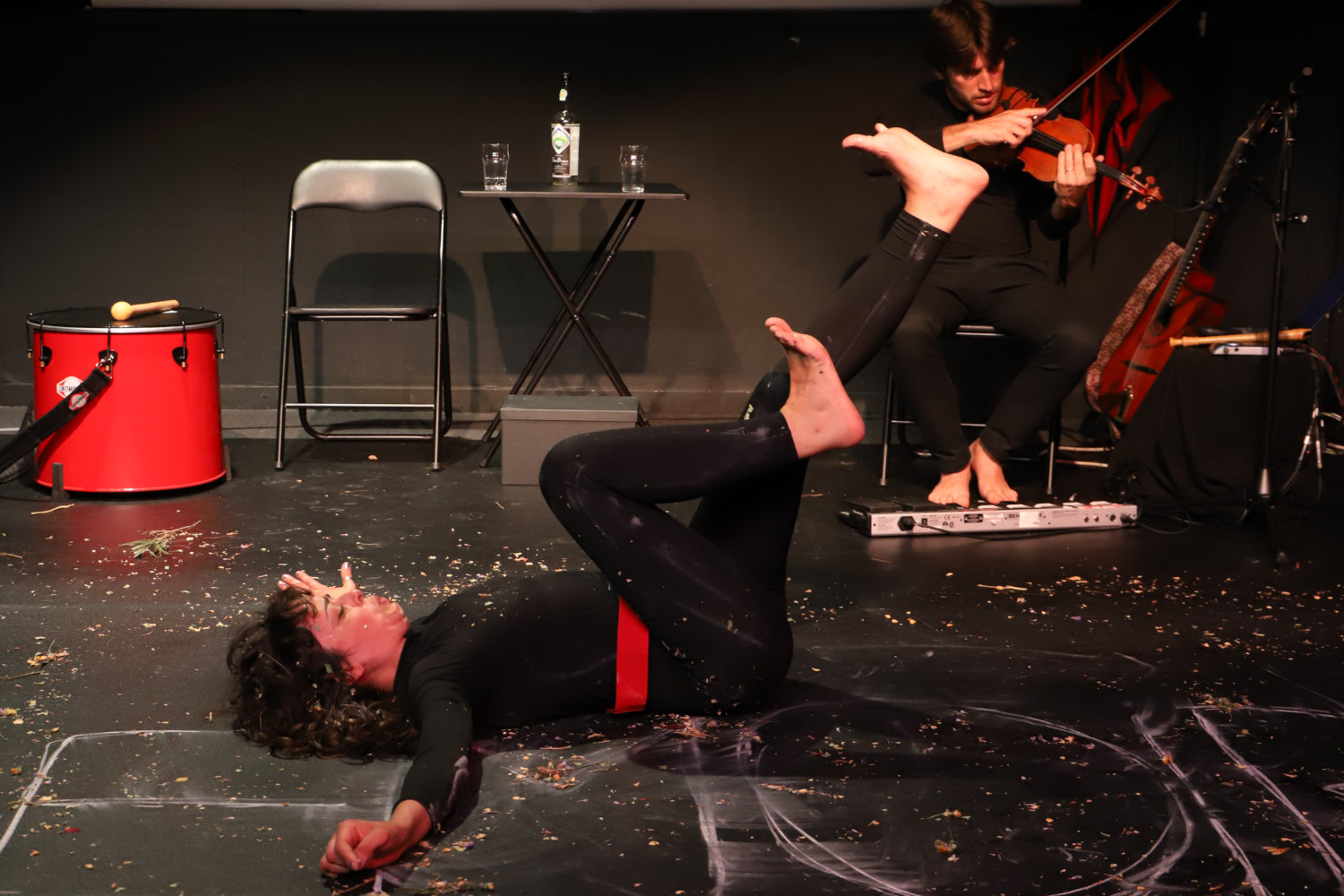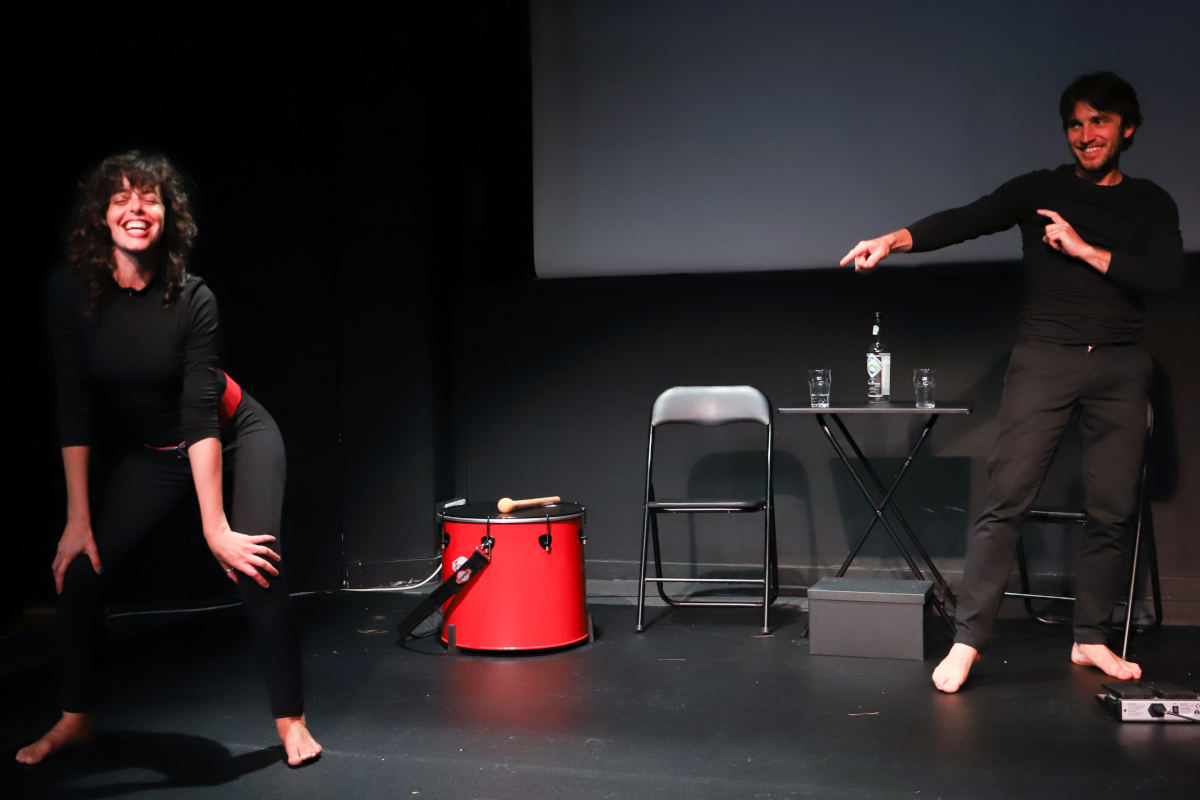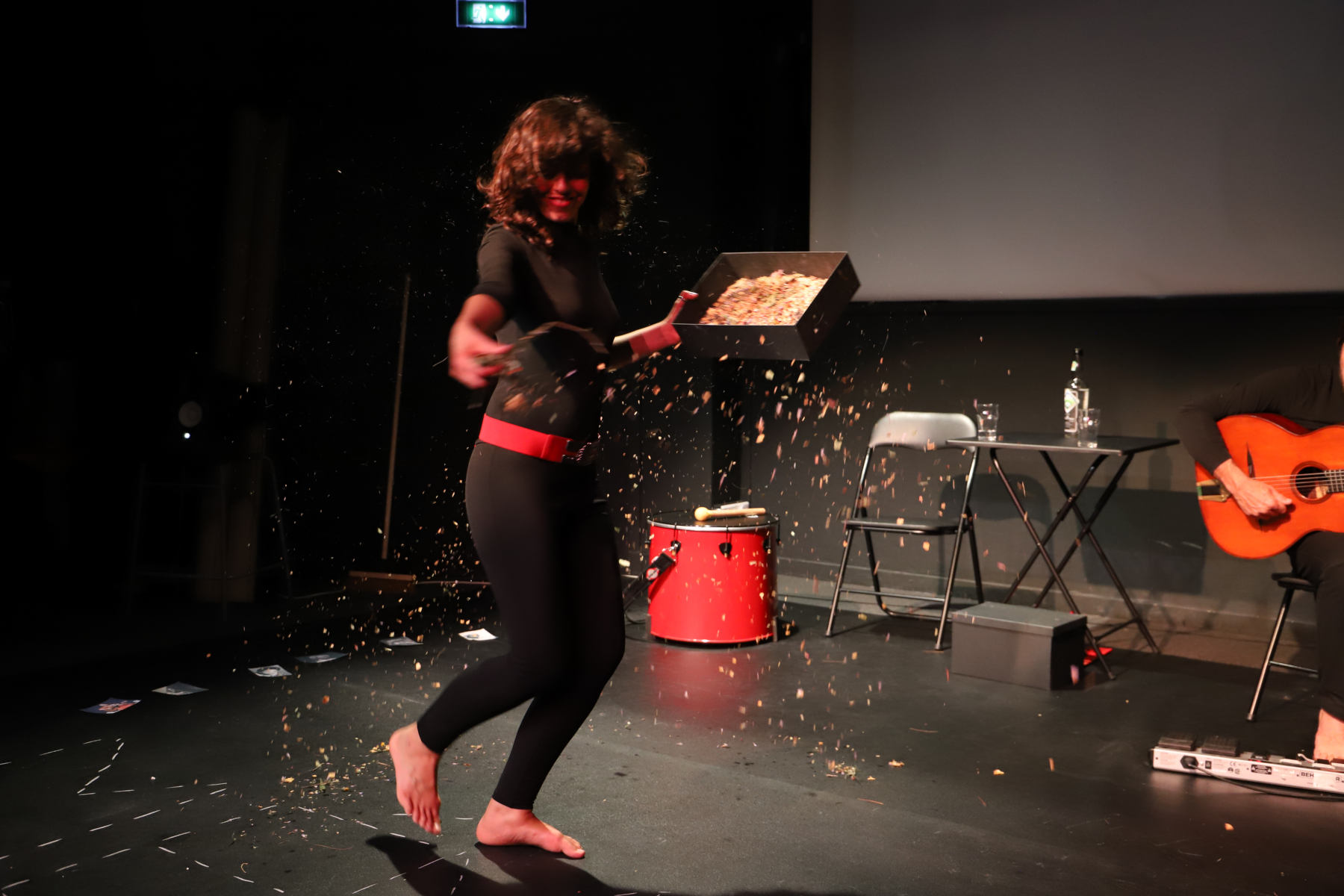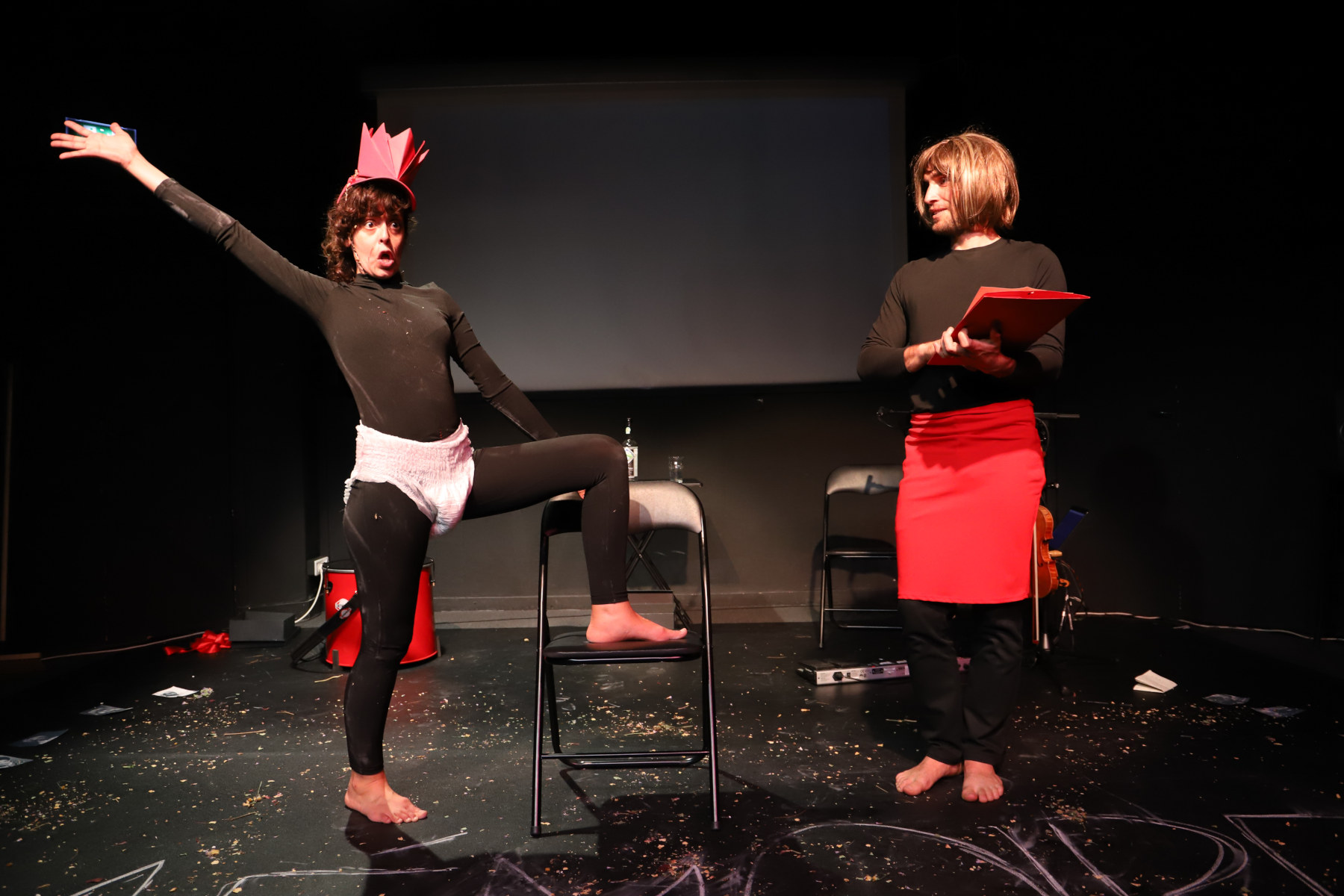
If it's to give birth to something, it might as well be a poem.
―Bárbara Maia
Several frames compose this narrative illustrating the feelings of a peripheral woman distant from her homeland, questioning her place in the world.
A sleepless night during the COVID-19 pandemic brings memories and reflections on experiences lived in Brazil and France; two distant football matches in time disturb the feelings of this Brazilian separated from her homeland, her team, and her heart's fans; the body disciplined by the Catholic school; a prince and the legacies of a reign; the people and the fractures of a country born from colonial violence; joy as a form of resistance.
The sense of an abyss between the two worlds experienced by the artist gives life to this work. Coloniality, present in the construction of bodies and minds, still governs the world and relationships. Recovering the memory of daily and subtle acts of resistance is an attempt to glimpse one's own identity. Sharing this work with the public is a political act.
- Bárbara Maia: text and direction
- Jean-Christophe Gairard: musical conception
- Jorge Santos: percussion creation
- Silvina Hurtado: acting direction
About
I realize that the gap between the "old" and the "new world" is greater than I imagined.
Coloniality is still very much present. I want to talk about it.
―Bárbara Maia
Bárbara Maia. A Brazilian artist-creator recently arrived in France, continuing my theatrical gesture in this country where I have chosen to live appears to me as a necessity, as a driving force. A woman from the working class born on the outskirts of a country itself on the periphery, I have always followed the path of the transubstantiation of reality.
Graduating from prestigious theater schools in Brazil and working as an art teacher specialized in gender and diversity in education, I chose in my country independent theater and public education to engage politically and artistically. In France, by witnessing the other side of this binary created by "dominant" countries, I realize that the gap between the "old" and the "new world" is greater than I imagined. Coloniality is still very much present. I want to talk about it.
About music composition
If the methodology used for the sound and musical composition of this piece is based on the principle of generative themes or motifs (melodic and/or rhythmic), my experience as a composer, previously limited to instrumental composition or for cinema, is profoundly enriched by the theater, particularly this engaged theater.
Music, as a support to the discourse, is entirely representative of my position in the play. It is a life narrative, a battle that I witness but that is not my own, simply due to my condition as a white heterosexual European man. In this play, the music never takes precedence over the theatrical performance; its role is to invite deep listening, a profound engagement with the narrative that comes from afar, from the other side, from our supposed "past" colonialism that unfolds in the present.
Offering my support to this work now seems like a natural choice: using my own tools to aid the struggles, to make them visible so they may come to fruition.
A kind of samba that illustrates the character's entry into memory:
Royalty, a parody that denounces the colonial poverty of that country, Brasil, where the prince must sell lands to afford a decent enough outfit for the marriage of the Prince of Monaco.
Rebolar, move your butt, in Brazil it is a verb full of meaning, it means dancing by moving your hips. It also means improvising, facing a difficult situation. Violated since 1500, we have to Rebolar every day to laugh a little more and cry a little less. To get out of the prison of yes and no that was imposed on us. To cure. To (sur)vive. To celebrate our beauty and our abundance that resist.





